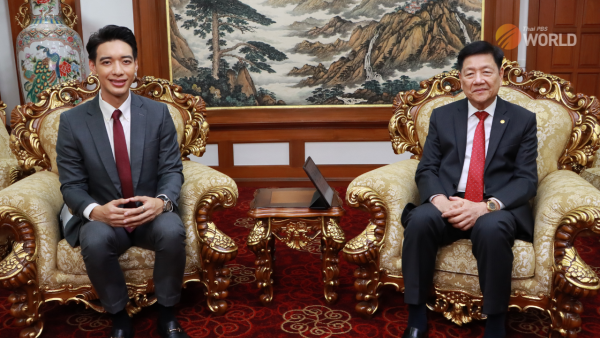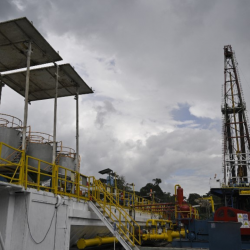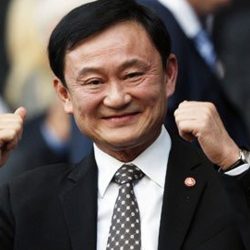Chinese business community confident of BRI benefits

Chinese President Xi Jinping has used a recent international forum in Beijing to reaffirm his commitment to advancing the Belt and Road Initiative (BRI), but questions persist as to whether the ambitious project is really of benefit to its partner countries.
In an interview with Thai PBS World, Narongsak Putthapornmongkol, the President of the Thai-Chinese Chamber of Commerce, highlighted the potential economic gains of the high-speed railway, a crucial component of the BRI, targeted at linking China with ASEAN countries.
“When we talk about investment in the Belt and Road Initiative, we talk about investment that also benefits those countries involved in the project. It’s not only China which will get the benefits. For Thailand, the initiative brings about prosperity, while China also has a share in it,” Narongsak said.
This high-speed rail link, once operational, will not only connect Bangkok to Korat but, ultimately, will link to Nong Khai and facilitate connection with Vientiane, according to Narongsak. Trains are expected to run at 300km/hr, offering a significant improvement over the current standard of 160km/hr.
The high-speed train has the potential to drive down transportation costs. Narongsak highlighted that, with high-speed trains connecting China, Laos, Thailand, Malaysia, and Singapore, the economy of Southeast Asia could receive a substantial boost.
He admitted, however, that ongoing regional and geo-political conflicts, especially the current Israel-Hamas war, are posing major challenges to the global economy. Given that more than 31% of global oil production originates in the Middle East, rising oil prices have become a major concern for Thailand and most other countries.
“Wars always have a global impact, no matter where they take place, especially for countries like Thailand, which depend on oil imports. Since the Middle East is a major oil producer, a crisis there inevitably has an impact on oil supplies and energy prices,” Narongsak said.
In addition to external challenges, Thailand is also grappling with a shortage of skilled workers. Narongsak emphasised the need for Thailand to upskill its labour force, to attract more foreign investment. “What worries us is how our skilled workers are flocking out of the country. Saudi Arabia is also attracting Thai workers. What we should do is concentrate on training our workforce in skills that match the needs of the various industries,” he said.

To revive its economy, the Thai government is relying on tourism. Prime Minister Srettha Thavisin’s administration has implemented a visa-free policy for Chinese and Russian nationals. The recent shooting incident at Siam Paragon, a well-known shopping mall in Bangkok, has, however, raised concerns over foreign visitors’ confidence in public safety.
“I think that tourists don’t need to worry much about public safety, but we need to make them feel safe. Today, I think we are doing a good job. In the case of Siam Paragon, the government fully controlled the situation. They took care of victims and the injured. HM the King showed support for those affected and our prime minister went to the scene immediately. In my opinion, we did better than many other countries in this regard,” Narongsak said.
One of the flagship policies of the Srettha government is the “digital wallet” scheme, which aims to provide a 10,000 baht taxpayer-funded benefit to more than 50 million Thai citizens, intended to spur the economy. While this policy is facing criticism as being too costly and populist in nature, Narongsak offered his support for the initiative and suggested giving the new prime minister more time to prove his effectiveness.
“From what I have seen in the news, Prime Minister Srettha has a packed schedule every day. He deserves empathy and I think he should be given more time. I believe the government will go ahead with the digital wallet policy, but he certainly needs more time,” Narongsak concluded.
Amid the ongoing geopolitical rivalry between the United States and China, Narongsak suggested that Thailand maintains a balanced approach, highlighting that Thailand’s strategic position allows it to benefit from both superpowers and act as a hub for trade in between.
“My observation is that the situation should give Thailand an advantage. When Chinese businessmen want to sell their products to the United States, they invest and produce in Thailand and export them to the United States. If the Americans want to sell products to China, they manufacture them in Thailand first and then export them to China. There are no friends or foes in trade. Thailand and China are like siblings. America and Thailand are allies. That’s how Thailand has been positioning itself,” Narongsak explained.
By Franc Han Shih
The interview with Mr. Narongsak Putthapornmongkol, the President of the Thai-Chinese Chamber of Commerce






